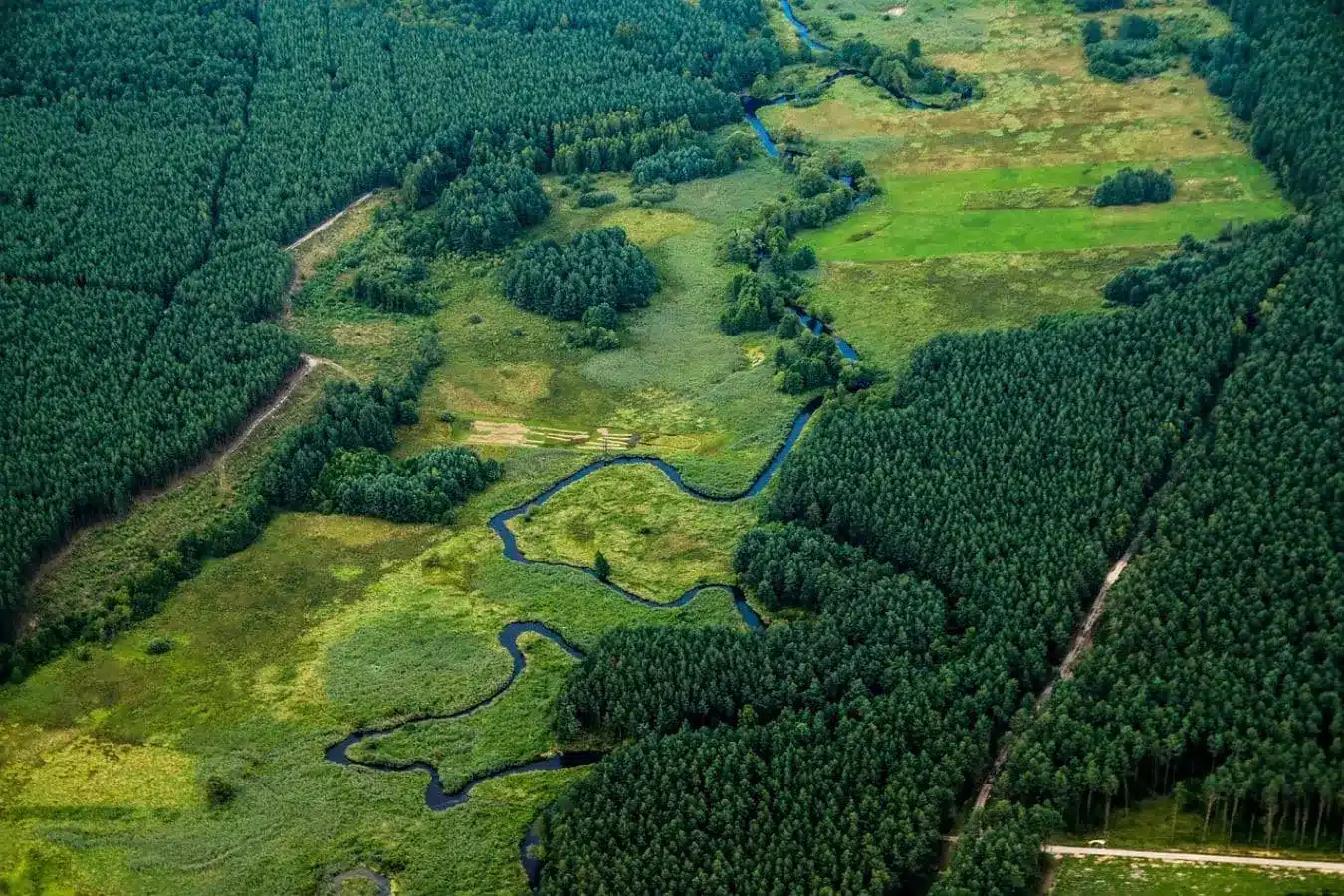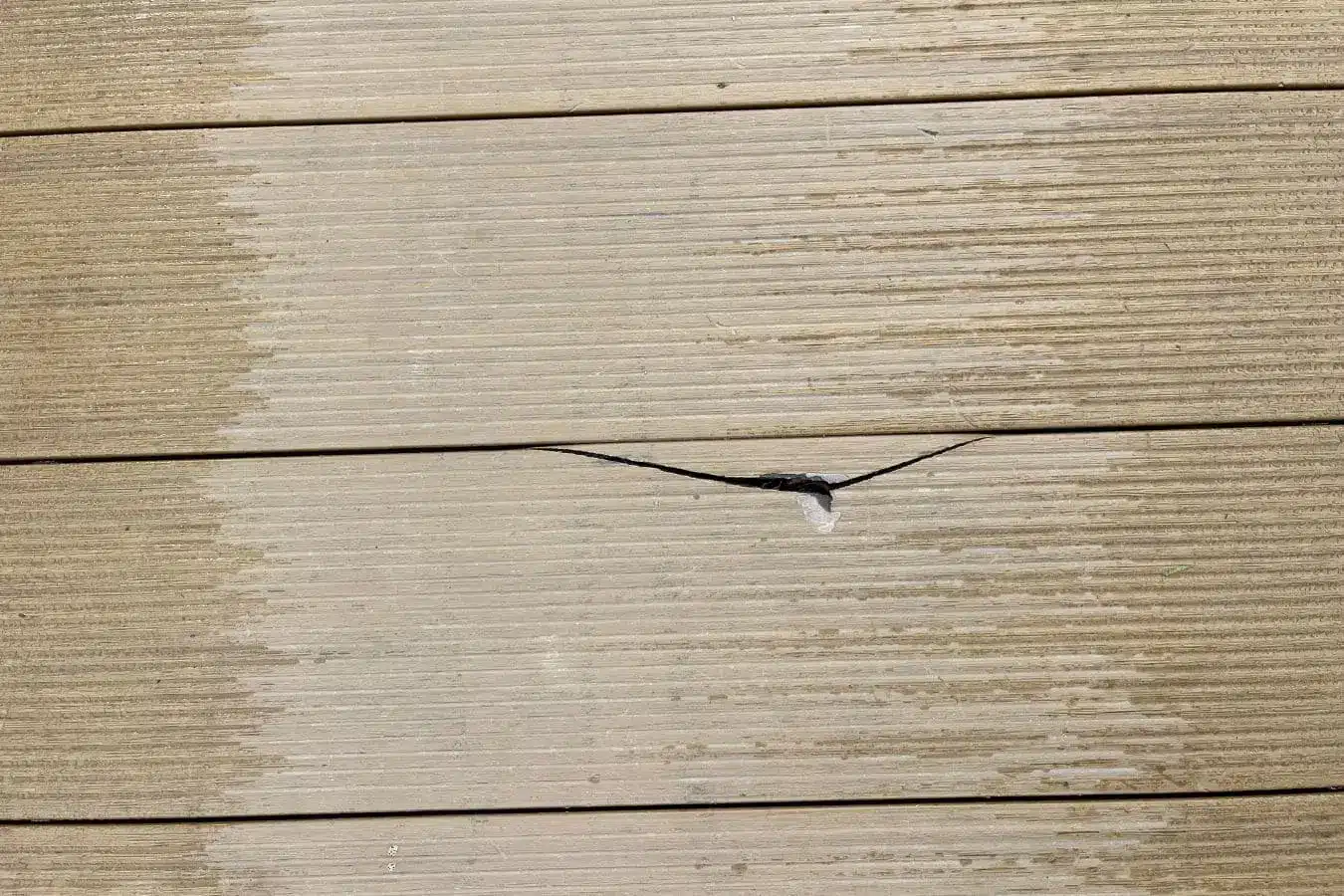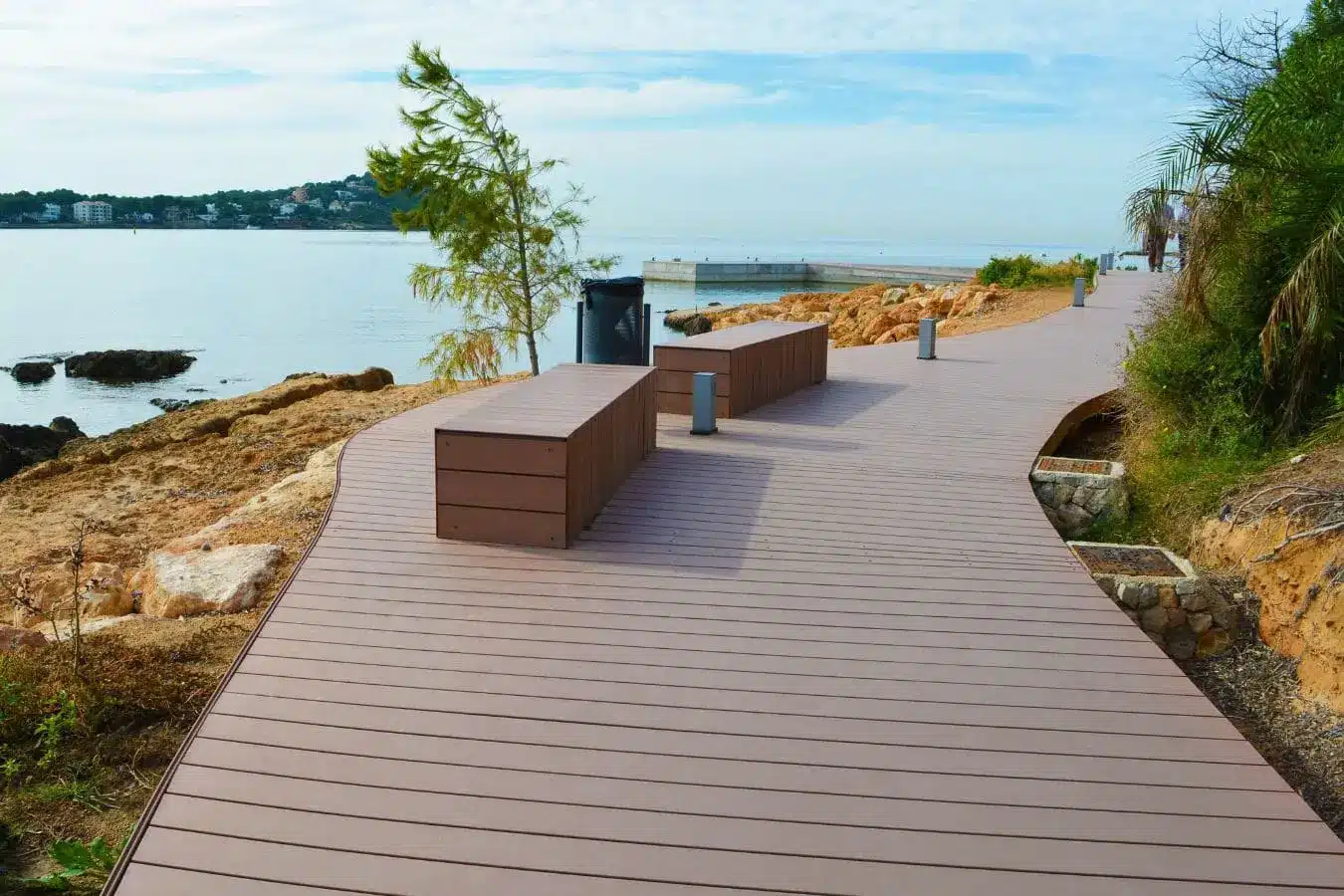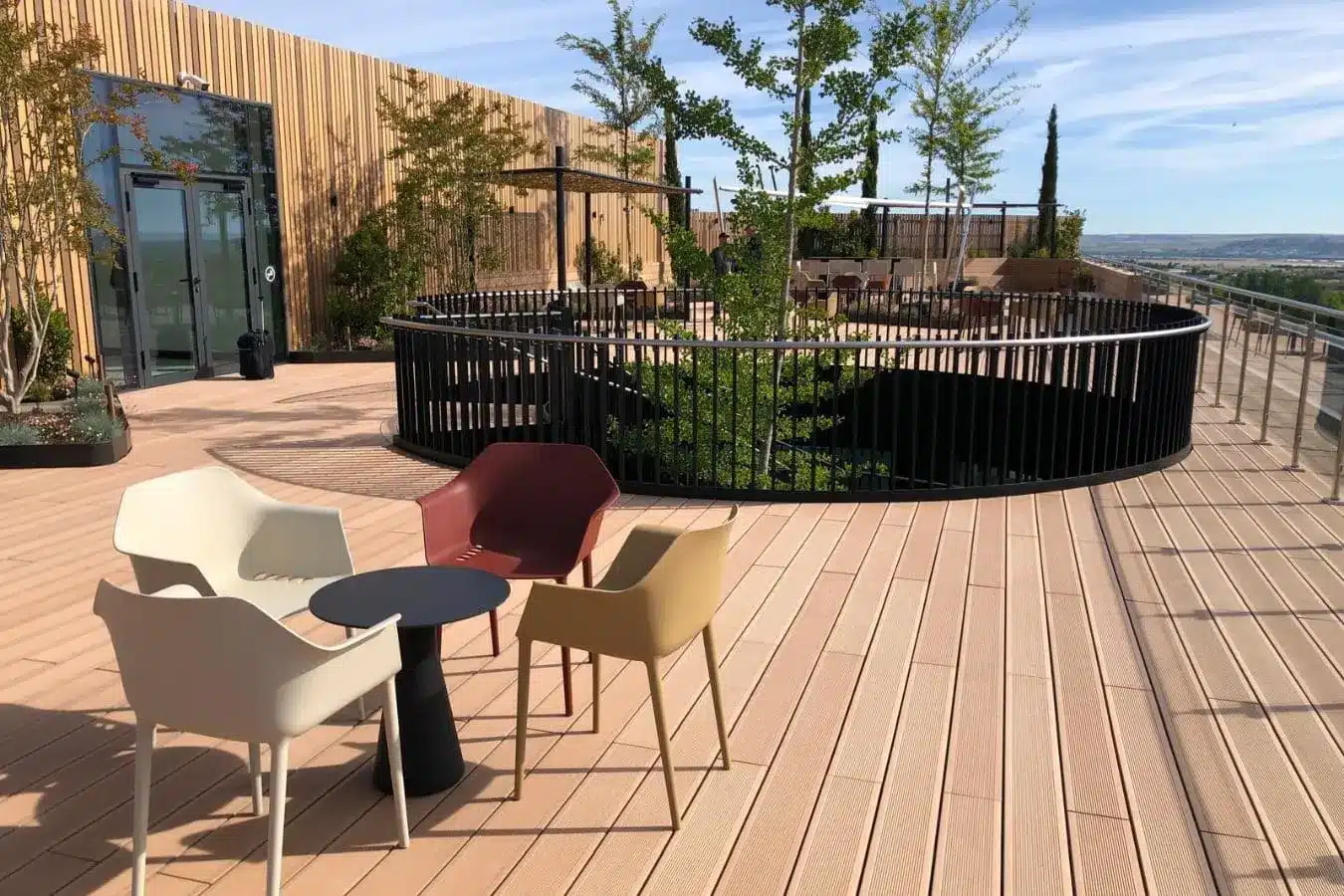Sustainability has become a crucial factor when selecting materials for construction and outdoor design. In an increasingly environmentally conscious world, consumers and designers seek options that not only offer performance and aesthetics but are also planet-friendly. In this context, technological decking® has established itself as an ecological alternative to traditional wood, thanks to its durability, strength, and lower environmental impact.

Technological wood, also known as composite decking, is manufactured primarily from recycled materials, reducing demand for virgin resources and avoiding deforestation. However, not all options on the market meet sustainability standards. Many decks consist predominantly of plastics, without a high share of recycled wood.
By contrast, Visendum’s high-quality technological decking®, made with 70% recovered PEFC-certified pine, not only ensures excellent durability and resistance, but also significantly reduces its ecological footprint across the entire production process.
Why are synthetic wood or exterior composite not sustainable options?
At VISENDUM® we understand that sustainability is a key factor when choosing materials for exterior flooring and cladding. Therefore, it’s essential to distinguish between truly ecological alternatives and those that merely appear to be.
Many products marketed as “composite” or “synthetic wood” contain plastic encapsulation and PVC, which impairs recyclability and creates hard-to-manage waste. Moreover, hollow synthetics can overheat, accumulate static electricity, and fail resistance tests under extreme weather conditions, such as EN 321.
Furthermore, importing low-quality composite materials also carries a high carbon footprint due to maritime transport. At VISENDUM®, on the other hand, we offer a genuinely sustainable alternative: our technological decking® made with PEFC recycled wood, which minimizes environmental impact by using reused resources and reducing CO₂ emissions in the manufacturing process.

Ecological Advantages of Technological Decking® for Outdoor Use:
Manufactured with recycled materials
One of the main ecological benefits of technological decking® is that it is produced from recycled inputs, directly helping to preserve ecosystems. Using recycled pine wood chips avoids unnecessary tree felling and protects biodiversity. Manufacturing technological wood from reusable resources also supports a circular economy model, reducing waste build-up in landfills and oceans.
As part of our commitment to sustainability, we’ve developed ECOBOX, a recycling programme that optimizes reuse of waste from our technological decks®. Thanks to this initiative, recycled wood waste is reintegrated into new production processes without generating unnecessary refuse.
Reduction of deforestation
Choosing technological decking® is pivotal in reducing forest exploitation, since it avoids felling trees for exterior flooring production. While natural wood demands high resource consumption for harvesting and treatments, decking made from recycled materials conserves ecosystems and promotes responsible use of natural resources.
At VISENDUM®, we ensure our technological wood comes from responsible sources. That’s why we use PEFC-certified recycled pine wood chips, guaranteeing that the raw material originates from sustainably managed forests.
- LEED®: MRC 2, 4, 5 and 7.
- BREEAM®: MAT 5, SyB 9, RSD 3.
- VERDE®: D02 and 06, B02, C17.
At VISENDUM®, we don’t cut a single tree for decking production. In fact, just 1 m² of our technological decking® prevents deforestation of 54 m² of Amazon rainforest, reinforcing its position as one of the most sustainable outdoor flooring solutions on the market.

Greater durability and lower environmental impact
Durability is key to ensuring a material is truly sustainable. Unlike natural wood, which can deteriorate due to moisture, insects, or prolonged sun exposure, only the best technological decking® offers longer lifespan and less frequent replacement.
At VISENDUM®, we design our technological decking® to withstand extreme weather conditions, thereby avoiding premature wear. And because it is resistant to outdoor exposure, mold and pests, its maintenance is minimal—reducing use of chemical products such as varnishes, sealers or paints, which can be harmful to the environment. This translates to a lower environmental impact throughout its life cycle.
Lower water consumption and pollutant use
Maintenance of technological decking requires fewer resources compared to traditional wood. While wood needs regular treatments with varnishes, oils or sealers to prevent degradation, VISENDUM® decking only needs occasional cleaning with water and neutral soap.
This yields significant reductions in:
- Water consumption during maintenance.
- Use of contaminant chemicals.
- Generation of toxic waste in the environment.
Recyclability at end of life
Another key factor in the sustainability of technological decking® is its ability to be recycled at the end of its lifecycle. This means that materials can be re-used in new production processes without unnecessary waste, contributing to a more efficient and environment-friendly circular economy.
At VISENDUM®, we are committed to offering solutions that are not only sustainable in production, but throughout their full life cycle. Therefore we choose materials that can be reused and recycled to minimize waste accumulation and promote more responsible construction.
Lower carbon footprint in fabrication and transport
The environmental impact of a material depends not only on composition but also on manufacturing and transport. Technological decking® requires less energy compared to traditional wood, as it does not involve intensive harvesting, drying or harsh chemical treatments.
Moreover, at VISENDUM®, we optimize our manufacturing and distribution processes to reduce carbon footprint, ensuring our technological decks are a more sustainable option not only in use but also in production and transport.

Conclusion
The ecological benefits of technological decking® make it an ideal choice for those seeking a sustainable alternative to natural wood. Its production with recycled materials, reduction of deforestation, high durability and low maintenance make it an efficient, environmentally respectful solution.
At VISENDUM®, we are committed to sustainability and innovation in the field of technological decking. Our dedication to quality and environmental respect has led us to develop solutions combining design, durability, and reduced ecological impact.
If you are looking for an ecological alternative for exteriors, we invite you to discover more about our solid Iberian technological decking® and learn how it can help contribute toward a more sustainable future.

